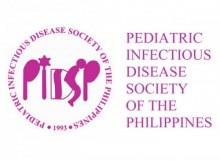Journal 2018 Vol.19 No.2
Effectiveness of Public Health Education by Lecture on Improving the Knowledge, Attitude and Practices on Leptospirosis Among Adolescents in a Public School in Manila
Jenna Angela D. Rubio, M.D.
Abstracts
Leptospirosis is endemic worldwide. Based on the 2016 Philippine Pediatric Society Disease Registry, there were 800 cases of leptospirosis from May 2006 to August 2016, making it a significant public health concern. Case fatality rate is about 8-9%, with increased prevalence of the disease among adults and adolescents.
Objective: This study was conducted to evaluate the effectiveness of public health education through a lecture on improving the knowledge, attitude, and practice scores on leptospirosis among adolescents from grades 7-10 in a public school in Manila.
Methodology: This was a cross-sectional analytical study. A pre-tested, self administered questionnaire was given among 357 students in a public school in Intramuros, Manila. A lecture regarding leptospirosis was conducted and a post-test was given afterwards. Data was analyzed using paired t-test.
Results: A total of 357 students were included, with an 88.37% response rate. Total mean pre-test knowledge score was 88.64%, and total mean pre-test attitude score was 80.97%. For practices related to leptospirosis, the total mean pre-test score was 72.12%. Pre-test knowledge scores were compared with post-test scores. After the lecture, there was a significant increase in their knowledge on leptospirosis (p=<0.0001). There was also an improvement on post-test scores on attitude and practices regarding leptospirosis (p=<0.0001).
Conclusion: Public health education through a lecture was effective in increasing the knowledge, attitude, and practice scores on leptospirosis among adolescents. This may help in the prevention of the disease in the adolescent population.
Keywords: Leptospirosis, Adolescence, Public Health Education
https://doi.org/10.56964/pidspj20181902005
| View Full Article in PDF format |
Journal 2018 Vol.19 No.2 Original Articles 3pidsp@uplink.com.ph2022-12-10T09:05:37+00:00
